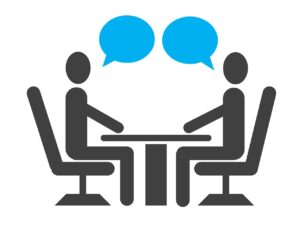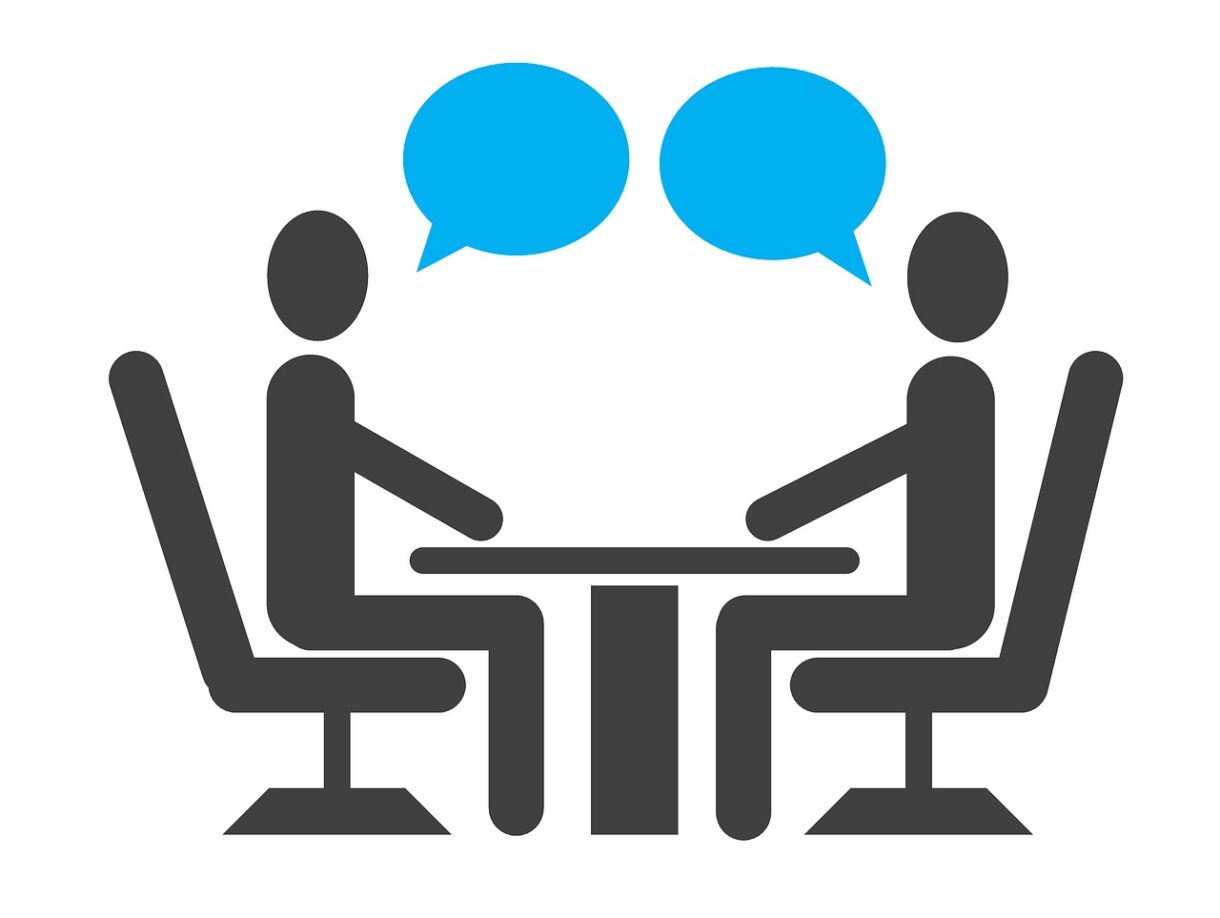Job interviews are no longer just about skills and qualifications; employers are keen on discovering the person behind the resume. The question “What makes you unique?” allows candidates to showcase their personality, creativity, and distinct qualities.
It’s a query that goes beyond the standard resume and dives deep into your individuality. Crafting a compelling response requires strategic self-reflection and an understanding of what employers seek.
Let’s explore and learn how to answer this question!

Understanding the Question
If there’s any ambiguity in the question, understanding it prompts you to seek clarification. This ensures that your response aligns with the intended inquiry and contributes to effective communication. The question also serves to evaluate your fit within the company culture. Your uniqueness should align with the values and expectations of the organization.
By asking this question, employers aim to allow you to shine. It’s your chance to stand out, leaving a memorable impression beyond qualifications and experience. Ultimately, the question encourages candidates to engage in self-reflection. It pushes you to consider what truly makes you stand out and how those qualities benefit the prospective employer.
Understanding these underlying motives can guide you in crafting a response that answers the question and addresses the employer’s concerns and expectations. By comprehending the question, you can respond succinctly and directly, contributing to the overall efficiency of the conversation or interaction.
Tips for Answering the Question
Crafting a compelling response to “What makes you unique?” requires finesse. Follow these tips to stand out confidently:
. Identify Personal Strengths
Identifying your strengths is the first step in crafting a standout response to “What makes you unique?” Recognizing your strengths enables you to tailor your responses to the job’s requirements.
It’s a strategic way of demonstrating the unique qualities that make you an ideal fit for the role. Whether it’s problem-solving, effective communication, or leadership, pinpoint the strengths that made a difference.
Consider feedback from peers or supervisors. What have others praised you for? These compliments often highlight strengths you may not have consciously acknowledged.
Look at your skill set. Are there technical skills, soft skills, or a unique combination of both that you bring? These skills contribute to your professional identity.
Don’t shy away from introspection. What aspects of your personality drive your success? Whether it’s resilience, adaptability, or a passion for learning, these personal qualities shape your unique profile.
In short, identifying personal strengths involves recognizing achievements, considering feedback, evaluating skills, and embracing your intrinsic qualities. Understanding and articulating these strengths will pave the way for a compelling and genuine response in your job interview.
. Evaluate Your Experiences
Evaluating your unique experiences is crucial to showcasing what makes you stand out in a job interview. Start by reflecting on the diverse situations you’ve encountered throughout your personal and professional journey.
Consider the challenges you’ve overcome. Did you navigate a complex project, lead a team through a strict deadline, or find innovative solutions to problems? These experiences highlight your ability to handle adversity and bring a unique perspective.
Examine your professional milestones. Have you achieved significant results, exceeded targets, or played a crucial role in successful initiatives? Your track record of accomplishments adds weight to your uniqueness.
Look beyond traditional work experiences. Consider volunteer work, passion projects, or hobbies that have shaped your skills and worldview. These unconventional experiences often reveal distinctive qualities that set you apart.
Evaluate how your experiences align with the job you’re interviewing for. What lessons have you learned directly contribute to your suitability for the role? Demonstrating the relevance of your unique experiences to the prospective employer enhances the impact of your response.
. Connect Skills to the Job
The art of answering “What makes you unique?” extends to connecting your skills directly to the job at hand. Start by identifying the specific skills the job description emphasizes.
Align your skills with the job requirements. If the role demands strong communication skills, highlight instances where you effectively conveyed complex ideas or facilitated smooth teamwork. Make the connection clear and direct.
Emphasize transferable skills. Even if your previous roles differ, highlight skills that seamlessly translate to the new position. This demonstrates versatility and adaptability.
Relate your skills to the company’s goals. Showcase how your unique skill set contributes to achieving the organization’s objectives. Employers appreciate candidates who understand the broader impact of their skills.
Quantify your achievements. Attach tangible results to your skills. If you improved efficiency or increased productivity, quantify the percentage or numbers. This not only showcases your skills but also proves their impact.
Ensure your examples resonate with the job context. Tailor your responses to match the specific needs and nuances of the role. This targeted approach ensures that your skills align with the employer’s needs.

. Use Storytelling Techniques
Effective storytelling is a powerful tool when answering the question, “What makes you unique?” It adds depth and engages the interviewer. Start by selecting a compelling story that encapsulates your uniqueness.
Begin with a clear structure. Introduce the setting, the challenge or opportunity, your role, and the resolution. This structure helps the interviewer follow your narrative seamlessly.
Highlight your role in the story. Clearly articulate how your actions and decisions contributed to the outcome. This emphasizes your uniqueness and showcases your ability to make an impact.
Inject emotion into your storytelling. Help the interviewer connect with your experience by conveying your passion, determination, or excitement during the situation. Emotional resonance makes your story memorable.
Ensure your story relates directly to the question and doesn’t veer off course. A concise narrative keeps the interviewer engaged and highlights the key aspects of your uniqueness.
A well-paced story maintains the listener’s attention. Avoid rushing through crucial details and allow moments of suspense or reflection to enhance the storytelling experience.
. Aligning Unique Qualities with Job Requirements
Successfully answering “What makes you unique?” involves aligning your distinctive qualities with the specific requirements of the job. Tailoring your response demonstrates a clear understanding of the position and enhances your candidacy.
Start by carefully reviewing the job description. Identify key skills, traits, and qualifications the employer is seeking. These are your cues to shape your response.
Highlight qualities that directly address the job requirements. If the role values creativity, share instances where your unique approach led to innovative solutions. This direct alignment showcases your suitability for the position.
Emphasize your adaptability. Showcase how your unique qualities enable you to quickly adjust to new challenges or environments, a crucial aspect of roles with evolving responsibilities.
Connect your qualities to team dynamics. If collaboration is essential, discuss how your interpersonal skills and team-oriented approach contribute to a positive work environment. This demonstrates your ability to integrate into the team seamlessly.
Be specific and concrete. Provide examples that illustrate your unique qualities in action. Specificity adds credibility to your response and allows the interviewer to envision the value you bring to the role.
In short, aligning unique qualities with job requirements involves a strategic match between your distinct attributes and the position’s needs. By demonstrating this alignment, you position yourself as a candidate with unique qualities and understanding how they directly contribute to the team and organization’s success.
. Balance Confidence and Humility
Mastering the delicate balance between confidence and humility is crucial when answering the question, “What makes you unique?” Striking this equilibrium ensures you present your strengths without appearing arrogant. Here’s how to navigate this balance effectively.
Start by confidently stating your unique qualities. Clearly articulate what sets you apart, emphasizing your skills and experiences.
Acknowledge the contributions of others. Express gratitude for your opportunities and recognize the collaborative efforts that have shaped your unique qualities. This demonstrates humility.
Avoid excessive self-promotion. While it’s essential to highlight your strengths, refrain from boasting. Instead, let your achievements speak for themselves.
Use language that conveys certainty without arrogance. Employ phrases like “I have developed” or “I excel at” to communicate confidence in your abilities without overshadowing others.
Admit areas for growth. Humility comes from recognizing that there’s always room for improvement. Acknowledge that you’re continually evolving and open to learning.
Share credit for successes. If your unique qualities contributed to a team’s achievement, acknowledge the collective effort. This showcases confidence in your abilities and humility in recognizing the team’s impact.

. Demonstrate Enthusiasm
When answering the question, “What makes you unique?” infusing enthusiasm into your response is key. It not only captivates the interviewer but also communicates genuine interest and passion. Here’s how to effectively convey enthusiasm in your answer.
Express excitement about your unique qualities. Begin by stating what truly energizes you about your skills, experiences, and contributions.
Use positive and vibrant language. Employ words that convey passion and optimism. Phrases like “I’m thrilled to bring” or “I’m passionate about” inject enthusiasm into your response.
Share anecdotes with energy. When discussing specific examples, let your tone and expressions reflect your excitement during those experiences. Enthusiasm is contagious, and this energy can leave a lasting impression.
Express why the position aligns with your passions and how your unique qualities make you particularly enthusiastic about contributing to the team.
Maintain a lively demeanor. Pay attention to your body language and facial expressions. A smile and engaged posture convey enthusiasm nonverbally.
Explain why you are enthusiastic about contributing to the specific goals and values of the organization. This alignment reinforces your commitment.
So, demonstrating enthusiasm involves expressing excitement about your unique qualities, using positive language, sharing energetic anecdotes, showing eagerness for the role, maintaining a lively demeanor, and connecting your enthusiasm to the company. Infusing your answer with genuine passion makes you memorable and positions you as a candidate who is genuinely invested in the opportunity.
Conclusion:
You can craft a compelling and authentic response by following the strategies discussed, including identifying personal strengths, evaluating unique experiences, and aligning your qualities with job requirements. Your unique qualities are your strength, and each application is an opportunity to present the best version of yourself. Also, start applying with iApply!









